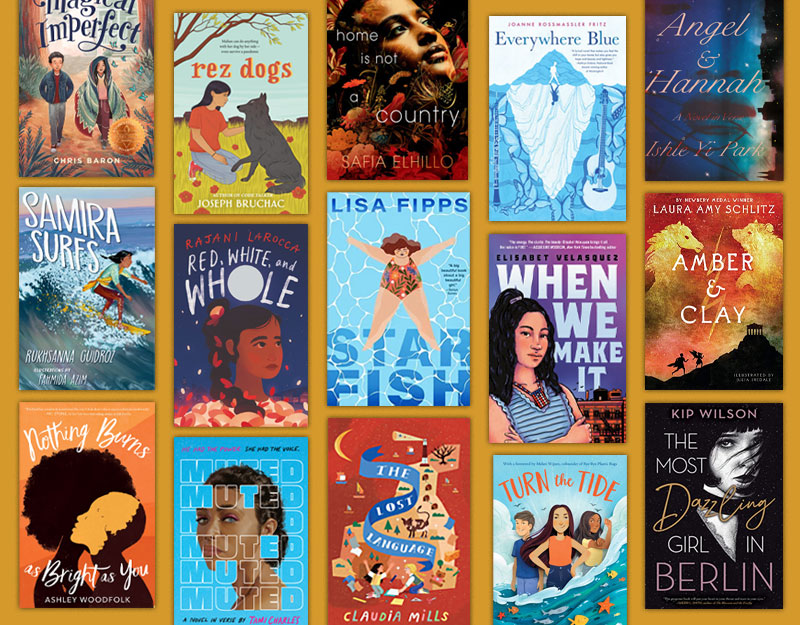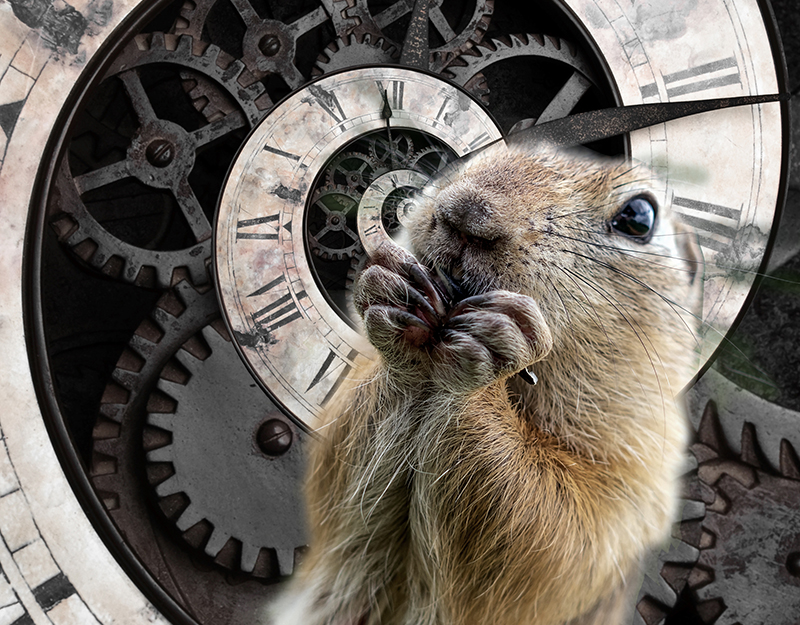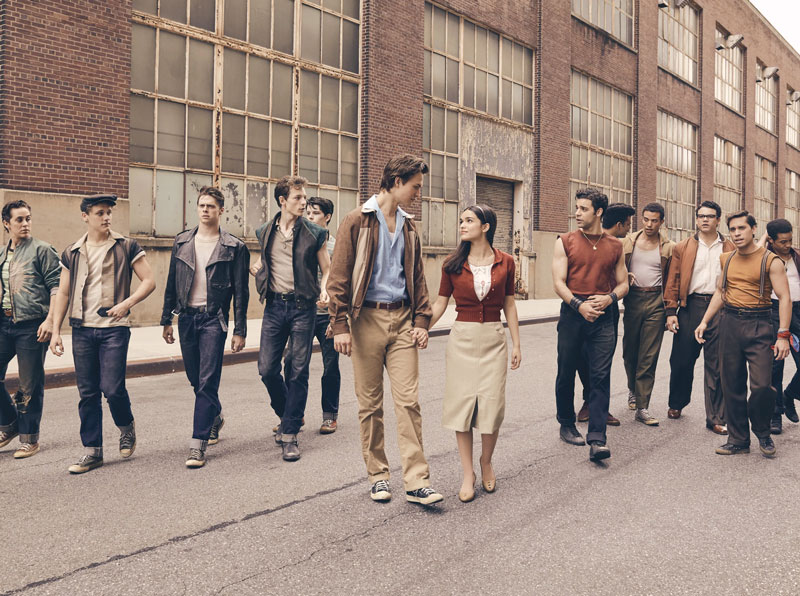Imperfect Elders: Why I Tell Intergenerational Stories, a guest post by Addie Woolridge

I came to vintage cars the way any good writer does, with absolutely no interest in them at all. After my granddaddy died, his pride and joy, a 1978 Mercedes 450SL convertible, came to me. I’d known it would, but as I sat in the garage of my Granddaddy’s soon-to-be-sold house and watched my dad and uncles try to start the beast, I was having second thoughts…not that I voiced them. This was my granddaddy’s legacy. I was one of his favorite grandchildren. No one questioned that this car should be mine. Indeed, Boss—the name everyone called Granddaddy—never asked me if I was interested. He just decided I was. After his death, we all continued to play along. His will was strong enough that he still exerted influence even from the grave.
There is a reason why I write about intergenerational families. In The Homecoming War, my protagonist, Meg, lives with her mother and grandmother, and is struggling to understand the adults in her life while she navigates a new school and an inconvenient crush. I particularly loved writing the scenes with Meg and her family, imperfect and loving as they are. I hope that readers see the conversations, conflicts, and acts of love I’ve written involving grandparents and elders as a way for them to make sense of their own relationships. It took me much longer than it takes Meg to make sense of the adults in my life.
ADVERTISEMENT
ADVERTISEMENT
When I was a kid, I asked my father why he called his dad Boss. Without a hint of irony, he looked at me and said, “Because he is more like a boss than a father.” It was the first time that anyone had let the mythology around Granddaddy slip and I started to understand that he was complex. Until that conversation, I thought of Granddaddy simply as an old man in a Cowboys sweatshirt, with a slow Texas accent, a short temper, and a stockpile of sparkling apple juice just for me. In reality, he was difficult to understand and his actions loomed large over our family.
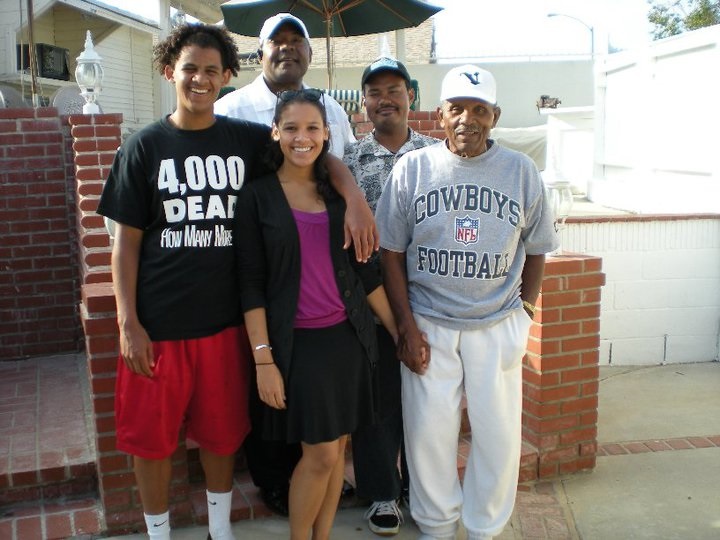
My grandfather was born in Marshall, Texas. The son of sharecroppers, he was one of thirteen kids in a town widely considered to be the last Confederate stronghold before the end of the civil war. Jim Crow was particularly evil there and to survive its brutality, he relied on two things: his work ethic and his dreams. Like much of the nation’s Black population, he and his family fled the South during the 1940s, buying the cheapest train tickets out, which landed them in the glitz and glam of Hollywood.
Boss was smitten with power and worshiped beautiful things. While segregation and racism meant that he was not going to become a celebrity, that didn’t stop him from trying to acquire all the trappings of it. He started a tree trimming business, caring for the yards of rich people. When business was good he would use the money to acquire the same things his clients had; houses, race horses, wives, fur coats, jewelry, and especially cars. (No joke, he once pulled my dad out of class in high school so that he could help my grandfather buy a Rolls Royce.) When times were bad, he’d get rid of all of it—children, horses, houses, wives—everything except the cars. Those were his legacy.
Boss had no daughters and wasn’t entirely sure what to do with the 17-year-old version of me who showed up at his house to visit colleges. By then, I was angry with him for the way he’d treated my father and grandmother, and I was spoiling for a fight. My dad didn’t stop me from pushing Granddaddy’s buttons or bossing him around, curious to see what would happen when the daughter he’d raised to be strong willed ran into the most immovable person he knew. To everyone’s surprise, Granddaddy let me win. He valued my tenacity, convinced it meant I’d be strong enough to survive and brave enough do something unexpected, and maybe even great. In his gruff way, he wanted to encourage me. Having spent most of my young life being told that a girl with opinions was a bad thing, him taking a liking to me made no sense. We had nothing in common, and willful girls are supposed to be a thorn in someone’s side. He should, in my teenaged opinion, find an easier grandkid to love.
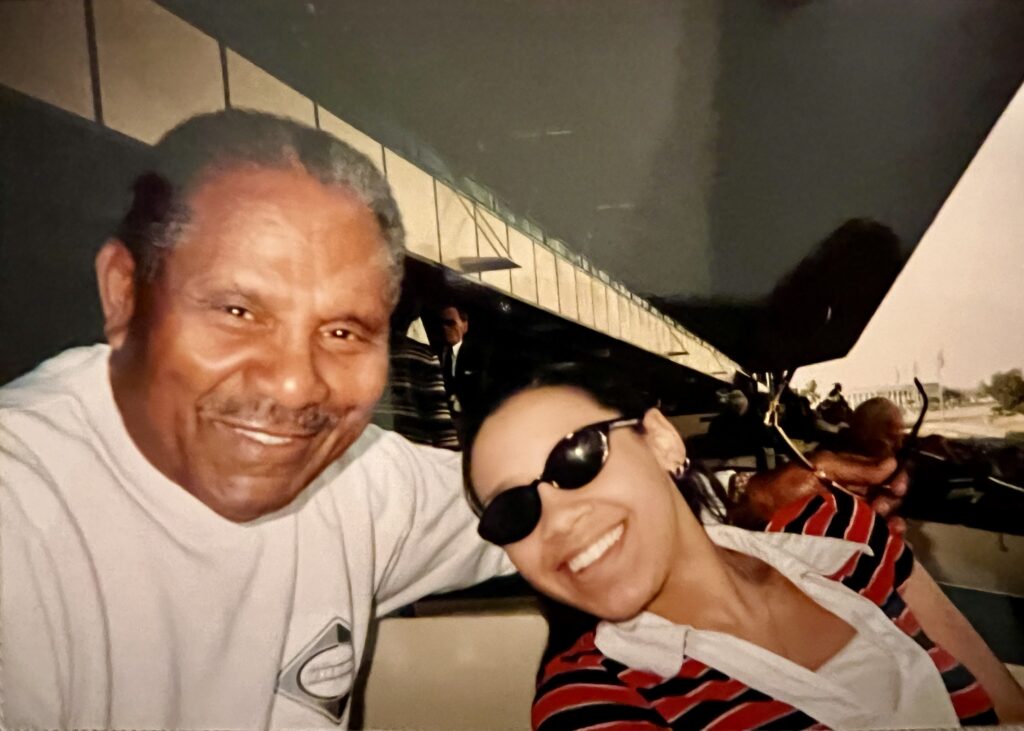
After I enrolled at USC, his house, with its plastic covered furniture and gold-lame everything, became my home away from home. He was still prickly and materialistic, but less selfish as a grandfather than he had been as a father. When I was over all the roommate drama or needed a quiet place to study, he would pick me up from school for a weekend.
That was when the car talk started. I’d be cramming for a test and he would ask if I wanted to sit in the Mercedes. Not drive the Mercedes, mind you. No one got to do that but him. However, letting anyone near the car was a big step for Boss. Granddaddy was not the sort of man to say I love you. But, if I squinted hard enough and tilted my head slightly, I could make out loving gestures. Sharing the car with me was one of those.
One weekend, he announced that the car would be mine when he died. He thought I’d need it to make a good impression driving to all the important meetings and the nice dinners he imagined I’d be invited to once I graduated. I don’t remember what I said, probably thank you. Since he was mercurial, I assumed that Boss would change his mind. I still figured he’d find a more agreeable grandchild to love.
The thing was, he never changed his mind and one day the car was mine. He’d been sick for a few years, and the car had sat idle for so long that it needed work. I didn’t have the money to fix it. Granddaddy worked so hard to leave me his legacy and now it was sitting unused in my driveway while I worked at nonprofits and tried to publish my stories, slowly saving money to restore a car that I didn’t want and whose previous owner I couldn’t make sense of. Eventually, I left Los Angeles and paid to have my out-of-order car shipped to my new home in San Francisco. I would check on it in the garage and feel wracked with guilt. There sat my granddaddy’s big dreams for me. I was emulating his hustle and chasing my dream of writing, but with none of the flash or glamor that he’d envisioned. Would he be proud of me? Was the dust on the car a sign that I really wasn’t the best grandkid to love? Did I care what he would think either way?
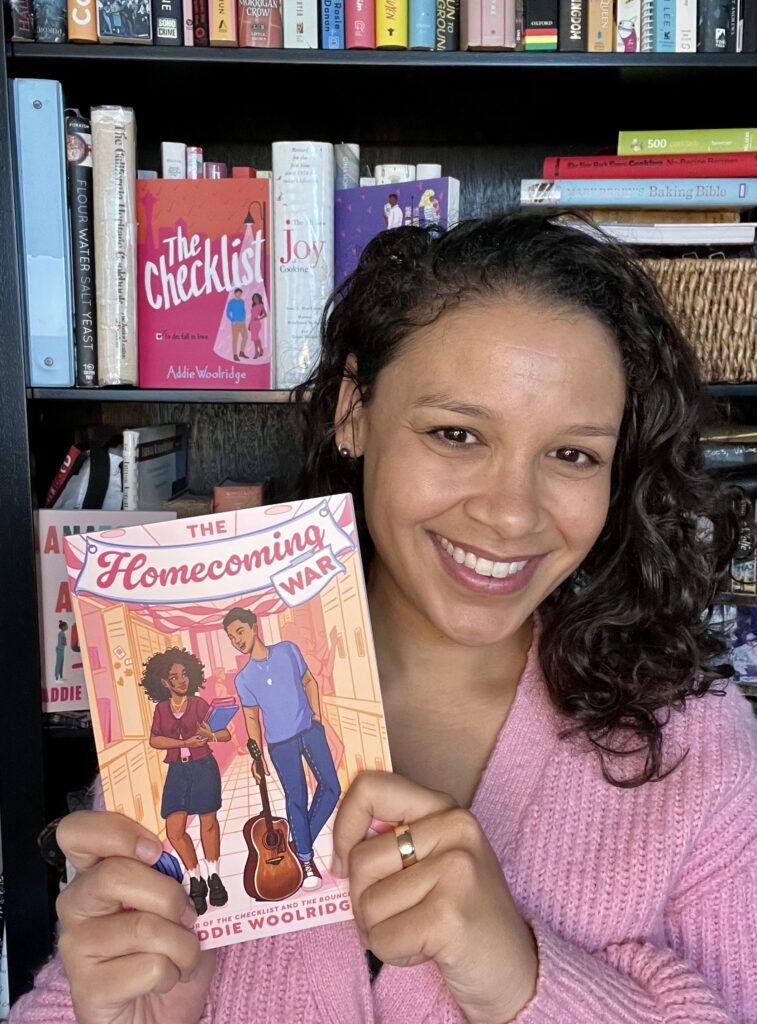
Eventually, the work ethic I’d gotten from Granddaddy paid off. I became a published writer. Even better, I was lucky enough that my books gave me the money I needed to fix up the car. Right as I started working on The Homecoming War, I decided it was time to take the old Mercedes into the shop.
It took months, but when I got the car back, it was beautiful. It almost felt unreal to see it running again and I feel in love with it for the first time. But, it wasn’t until I was driving it that Granddaddy started to make sense. He was obsessed with this car, but it was never the end goal for him. The car was simply a physical symbol of his hard work and the dreams that he had when he bought it. Driving the car home, I realized that I understood my grandfather after all. He was flawed, but he loved me the best way he knew how. Leaving me his car was his way of making sure that a tough girl knew that an even tougher man loved her. The car was his dream, but it was also my reminder that dreams were worth chasing.
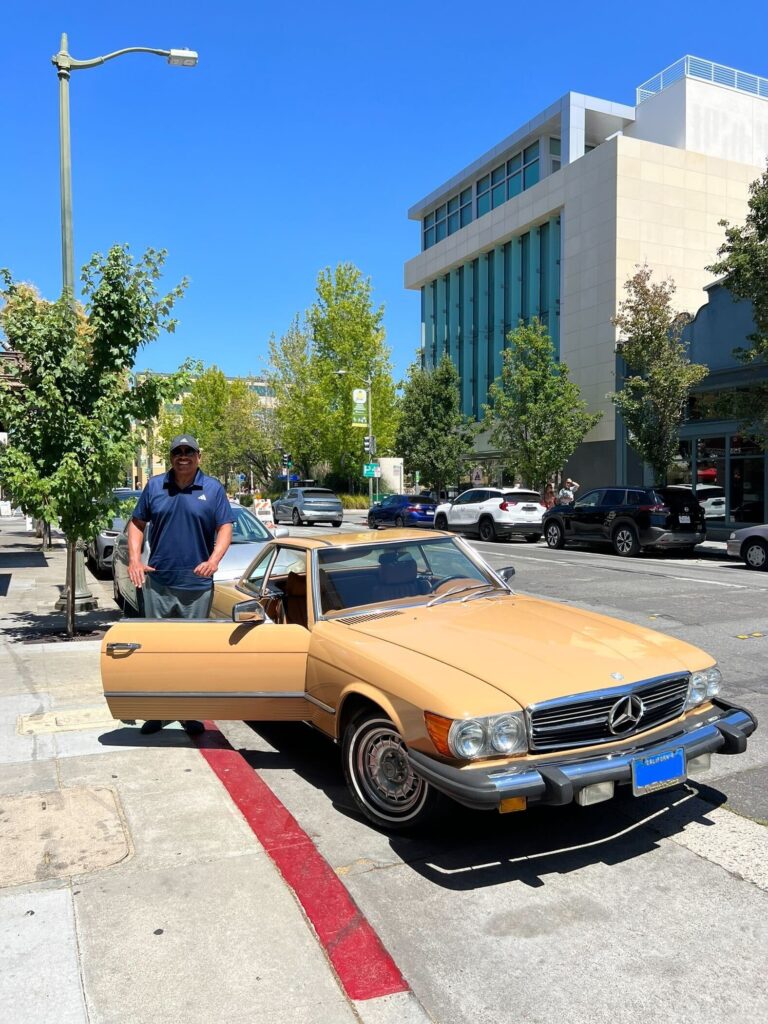
In the end, I wrote the car into The Homecoming War, too. I gave it to Meg’s crush, making sure to note that he borrowed it from his grandfather to try and impress her. It only seemed fitting to work it in. My granddaddy loved me in his way and wanted to leave me his legacy. He thought that legacy would be a car. I hope the story I’ve turned that legacy into is one he’d be proud of.
Meet the author

Addie Woolridge was born and raised outside Seattle, Washington. She is a classically trained opera singer with a degree in music from the University of Southern California, holds a master’s degree in public administration from Indiana University. She is the bestselling author of four rom coms, including The Homecoming War. Her novels follow the themes of diverse people learning to love themselves and finding joy in the world around them. Woolridge currently lives in Northern California.
Links
IG: @AddieWoolridge
TikTok: @AddieWoolridgeAuthor
About The Homecoming War
ADVERTISEMENT
ADVERTISEMENT
When plunging enrollment forces two rival high schools to merge, two class presidents must work together to make the schools unite. But when a mutual crush emerges, they’ll both have to figure out what they want and where their loyalties lie before they become the most hated people at school.
Meg Williams is on the way to making her dreams come true. As the incoming Junior class president for Hirono High School, all she needs are a few more As and an excellent college recommendation letter, then she can leave Huntersville, California, and her ghosts behind.
Or, at least she was on track until the school district decided to combine Hirono with their rival, Davies High School. Now, Meg is wandering the pristine hallways of Davies High, her life plan threatened by Hirono’s queen mean girl, Freya Allenson, and the maddeningly perfect Chris Chaves, Davies High School’s class president.
When it turns out Huntersville’s Golden Boy won’t just step down, Meg begrudgingly accepts that they’ll have to work together for the year. Worse still, escalating pranks between the rival classmates and a developing crush threaten to throw Meg even further off course. As homecoming draws near, both Meg and Chris will have to decide where their loyalties lie.
ISBN-13: 9780593568668
Publisher: Random House Children’s Books
Publication date: 10/03/2023
Age Range: 12 – 17 Years
Filed under: Guest Post
About Amanda MacGregor
Amanda MacGregor works in an elementary library, loves dogs, and can be found on Twitter @CiteSomething.
ADVERTISEMENT
ADVERTISEMENT
SLJ Blog Network
Name That LEGO Book Cover! (#53)
Review of the Day: Being Home by Traci Sorell, ill. Michaela Goade
Exclusive: Vol. 2 of The Weirn Books Is Coming in October | News
Fighting Public School Book Bans with the Civil Rights Act
ADVERTISEMENT




